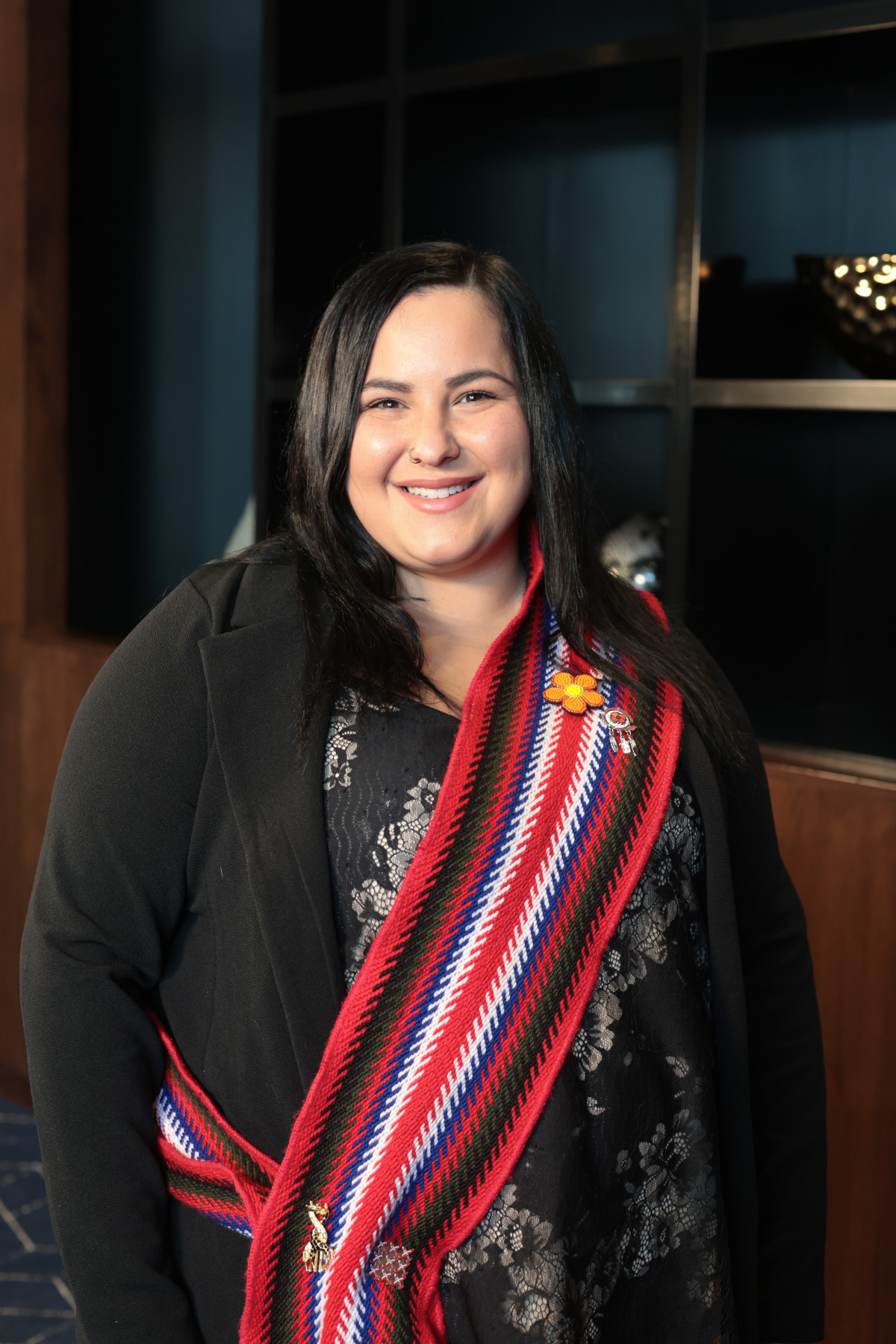Sierra Hill

Candidate, M.A. Public History
- B.A. Honours History (University of Winnipeg)
- Email Sierra Hill
Current Program: MA Public History (2024)
Supervisor:
Dr. James Opp and Dr. Michel Hogue
Academic Interests:
Public History, Red River Métis History, Métis Research Methodologies, Métis Kinship Responsibilities, Curating, Photographs, Identity, Cultural Preservation, Museums, Military History
Research Assistant for Dr. Serena Keshavjee SSHRC funded project The Visual Culture of Ghosts (2020-2021)
Teaching Experience
Teaching Assistant History Through Comic Books (HIST3909B – Amie Wright) Fall 2024
Description of Research:
My research will examine and build upon heirloom photographs gifted to me by my late grandmother Laureen Hill (nee Laramee), focusing on photos of her childhood community, Rooster Town. This analysis will include approximately seventy pictures from 1938 to 2021. Rooster Town was a Red River Métis fringe community in Winnipeg from 1901 to 1961, where residents faced structural poverty resulting from racial discrimination, as evidenced in newspaper articles during its existence (Winnipeg Free Press, 1951). The story of Rooster Town has begun to be recognized, and academics have indicated the richness of the community, but I fear the narratives remain focused on the impoverished environment of the citizens (Burley, 2013; Peters, Stock, Werner, 2018). In my seed research, I have noted the contemporary and intergenerational effects of living in a racialized community, ostracised from the confines of a settler society. As descendants of Rooster Town, members of my family have internalized these negative stereotypes but have begun reconnecting to our heritage, regaining a sense of pride that will impact our future generations.
Centring Indigenous voices is vital in research of Indigenous communities, and further, I believe that as a Métis person, I have an obligation beyond academia that centres my kinship responsibilities. I will take the theoretical approach influenced by Indigenous academics such as Anna Corrigal Flaminio, Janice Cindy Gaudet, and Leah Marie Dorion, who have built their research on a foundation of whakotowin (their Métis kinship responsibilities) and kiyokewin (Métis ways of visiting). To do this, I will invite my father and sister and potentially other relatives to analyze the photos with me. We will examine the photographs, looking at how the images of family, celebrations, and material culture vary from the common narrative of Rooster Town while also recounting stories passed down to us. We will examine the photos using a Métis Kitchen Table Methodology that continues honouring Indigenous Knowledge Systems and our whakotowin (Mattes, 2021).
Throughout my research, I will follow the lead of photography historian Dr. Susan Close by conducting a cultural analysis to understand the relationship between Red River Métis culture and photography. I intend to investigate how photos indicate Métis presence through attempted assimilation by government and society, which can also be seen within the exhibit Hiding in Plain Site (Greenhorn, Benoit, 2023). My project will culminate in a digital story and accompanying exhibit, allowing the public to have a deeper understanding of Rooster Town and Métis history that counters the negative or depressing narratives.